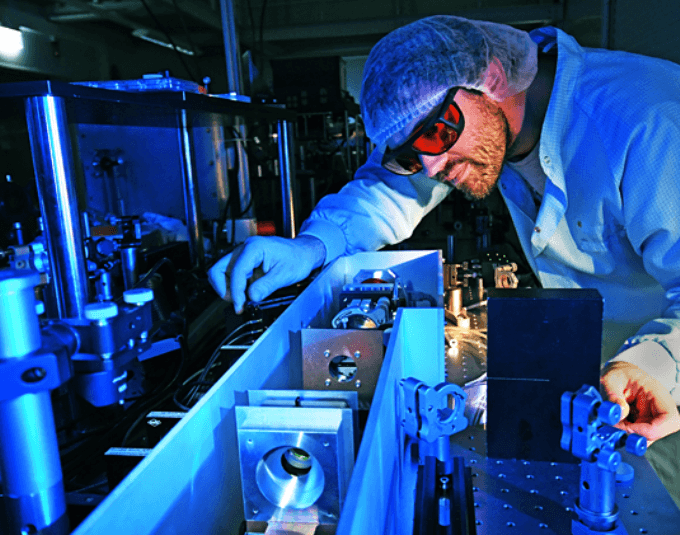Feb 6 2019
Laser physicists have successfully minimized the acquisition time for data essential for dependable characterization of multidimensional electron motions by a factor of 1000.
 Making Attosecond physics faster. (Image credit: Thorsten Naeser)
Making Attosecond physics faster. (Image credit: Thorsten Naeser)
It may seem absurd, but capturing the ultrafast motions of subatomic particles is truly very time-consuming. Experiments developed to monitor the dynamics of electrons mostly take weeks. Mapping the agitated gyrations of elementary particles involves the use of extremely brief laser pulses, and low signal-to-noise ratios require the accumulation of massive datasets over extended periods.
Currently, physicists based at LMU Munich involved in the MEGAS Project—a research partnership between Max Planck Institute for Quantum Optics, LMU Munich, and the Fraunhofer Institutes for Applied Optics and Precision Engineering and for Laser Technology—have considerably minimized the duration of such experiments. The key element of their new method is a unique enhancement resonator. Ultrashort, near-infrared laser pulses supplied to the cavity at a rate of 18.4 million per second are changed into extreme UV attosecond pulse trains, which are perfectly suited for experiments in electron dynamics.
The new laser source generates pulses at rates that are about 1000-fold higher than was previously feasible in this spectral range, which reduces the measurement times required by the same factor. This advance is of considerable significance for research on condensed-matter systems. It also opens up new opportunities for the investigation of local electric fields in nanostructures, which are of great interest for applications in future information processing with lightwaves.
Dr. Ioachim Pupeza, Study Leader, LMU Munich.